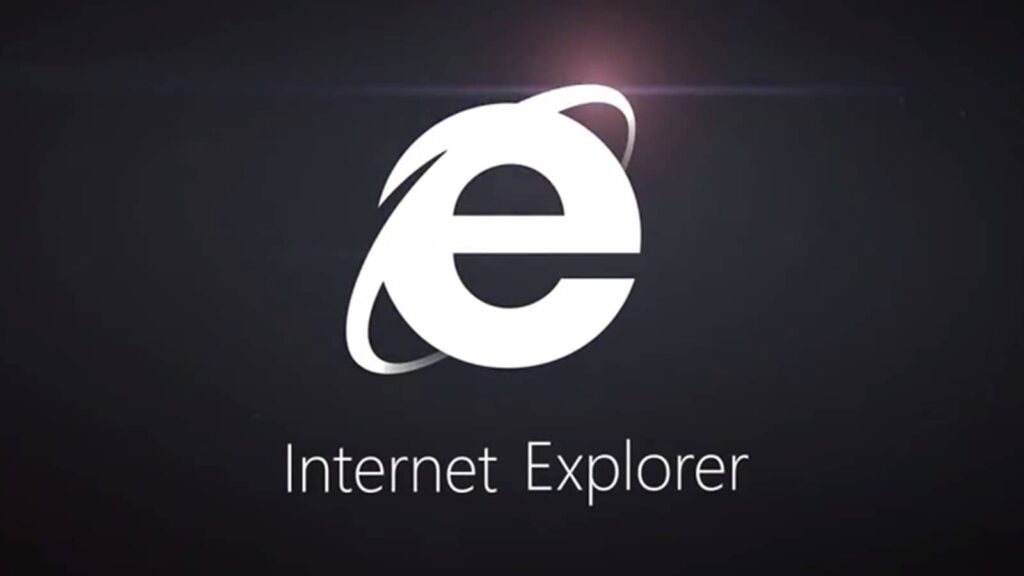Microsoft’s renowned Internet Explorer will be adjourned on June 15, 2022. Is Microsoft turning to potential impediments by discontinuing one of its earliest web products or is it preserving an elevator entryway for potential prospects? Should we be concerned and apprehensive about the pronouncement of Internet Explorer’s retirement, which has now been made official, before delving into the nitty-gritty? This article will address any apparent contradicting interpretations you may be subjected to.
For the past five years, Microsoft has been abstaining from numerous versions. In addition, on August 17, Microsoft 365 and other programmes will discontinue functionality for all versions of Internet Explorer.
Since its inception in 1995, the Internet Explorer (IE) has experienced substantial peaks and troughs. For over 20 years, commencing in 1997, the Internet Explorer has been viewed to be preinstalled on every Windows computer. It will cease to be patched in June 2022, though its many versions will persist on machines that are seldom upgraded and are owing to distinctive settings.
Over the next year, Microsoft will need to lure even more users away. Those who continue to exist will be vulnerable to security flaws in the long haul.

Ascendancy was determined in the early years, but it eventually subsided as Google Chrome and Mozilla delivered comparable solutions while sending ominous signals to Internet Explorer through their burgeoning market share.
It was not the first time that the most modern alternatives posed a danger to the ageing pioneer in the face of rising technology and competition. It had a significant influence on Internet Explorer, causing its popularity to plummet. As of April 2021, Google Chrome claimed a 65% market share. Despite this, the browser had a market share of 5.2% in November and was ranked fourth for desktops.
Notwithstanding the contingencies of how the sector operates, it has sparked uncertainties amongst the users of its own. The historic Internet Explorer has several drawbacks that cause resistance intermittently. Even after splendorous online offers, the explorer turned into a barren and desolate web.
It exhibited complications with speed, authenticity, and perceived effectiveness, as well as a never-ending series of exceedingly grave security vulnerabilities. Security-related browser bugs were also exposed. Contrary to the other browsers, the IE is only updated once a month. Its shortcomings and inadequacies forfeited its reputation, leaving no scope for improvement.

For over five years, Microsoft has undertaken several interventions to dissuade individuals from employing Internet Explorer. It also unveiled Microsoft Edge and urged businesses to adopt it. Microsoft Edge, along with its IE mode was originally launched in 2015. With its newest web offerings, the Edge exemplifies the future and operates on the equivalent technology as Google Chrome.
Furthermore, after transitioning to Microsoft Edge, users will be enabled to retain their old credentials, passwords and applications from Internet Explorer. Owing to its involvement with a multitude of sectors, Internet Explorer is still existent. In a recent blog post, Microsoft Edge product manager Sean Lyndersay stated, “If Internet Explorer has been your go-to for years, Microsoft Edge can now be your trusted web companion.
” Microsoft has been involved in extensively advertising its Edge browser to consumers. It also exclusively placed reliance on Microsoft as a compatibility remedy. “
Not only is Microsoft Edge a faster, more secure and more modern browsing experience than Internet Explorer, but it is also able to address a key concern: compatibility for older, legacy websites and applications,” Microsoft said.
In conclusion, although the historic web browser marked the culmination of the era, another will yet be resuscitated by Microsoft Edge with the incessant support of Microsoft.
Written By – Sakshi Bansal
Edited By – Riya Khetan
The post The End of ‘Internet Explorer’ appeared first on The Economic Transcript.

